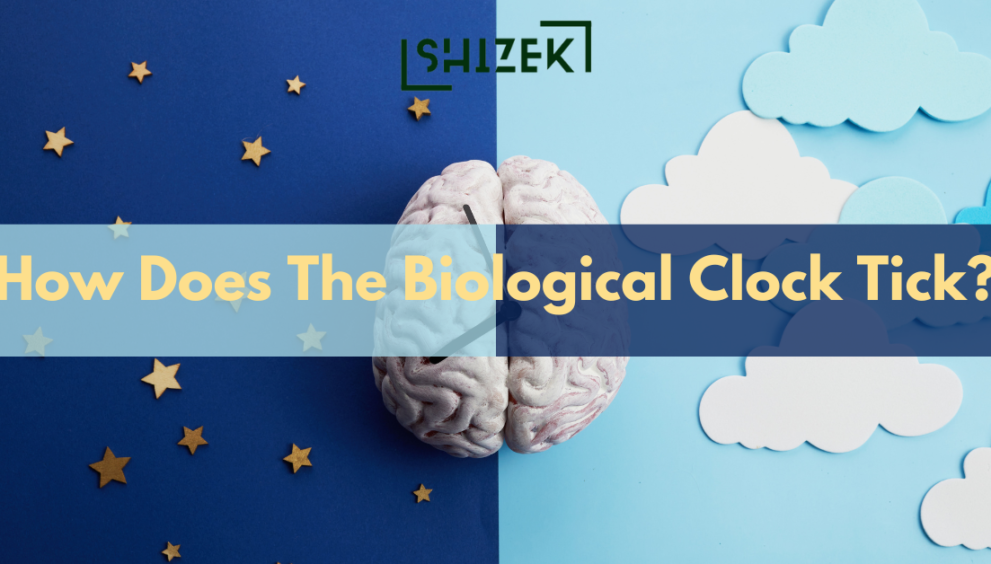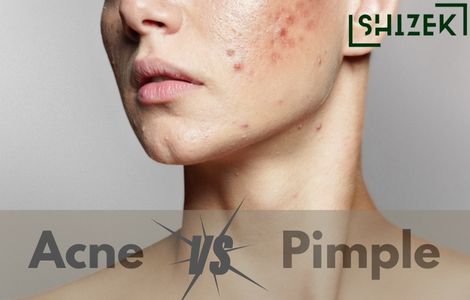How Does The Biological Clock Tick?

The biological clock is an internal system in our bodies that regulates daily physiological cycles, such as sleep, wakefulness, and hormone release. It ticks through a feedback loop of genes and proteins within our cells, influenced by light signals received by the brain, maintaining a consistent 24-hour cycle. In this article, we will discuss what a biological clock is, How It Ticks, and the factors influencing it.
Table of Content
- What is a Biological Clock?
- How Does the Biological Clock Tick?
- Importance of Biological Clock
- Factors Influencing Biological Clock
What is a Biological Clock?
The biological clock, also known as the circadian rhythm, is a natural, internal system that regulates the sleep-wake cycle and repeats roughly every 24 hours.
It is influenced by environmental cues such as light and temperature and plays a crucial role in controlling various physiological processes such as hormone production, metabolism, and cell regeneration.
The biological clock helps in coordinating our body’s functions with the external environment and is essential for overall health and well-being.
Must Explore:
- Difference Between Jaggery and Sugar
- 5 Major Nutrients in Our Food
- 10 Side Effects of Turmeric
- 20 Benefits of Turmeric
How Does The Biological Clock Tick?
The biological clock ticks through a series of natural processes that occur in our bodies, helping us maintain a regular 24-hour cycle.
Here’s a simple explanation of how this works:
The Master Clock in the Brain
- Suprachiasmatic Nucleus (SCN): The main biological clock is located in a tiny area of the brain called the suprachiasmatic nucleus (SCN). This part of the brain helps keep our body’s internal processes in sync with the outside world, especially the day-night cycle.
Light as a Key Signal
- Light Detection: Our eyes detect light and send signals to the SCN. This helps the SCN know when it is day and when it is night.
- Adjusting Functions: Based on these light signals, the SCN adjusts various body functions. For instance, when it gets dark, the SCN signals the body to produce more melatonin, a hormone that makes us sleepy.
Molecular Mechanisms
Inside our cells, certain genes and proteins work together to keep the biological clock ticking:
- Clock Genes and Proteins: These include genes with names like CLOCK, BMAL1, PER, and CRY. Here’s how they interact:
- CLOCK and BMAL1 Proteins: These proteins help turn on the production of other proteins, such as PER and CRY.
- PER and CRY Proteins: As PER and CRY proteins build up, they work to turn off the activity of CLOCK and BMAL1. This cycle of turning on and off repeats about every 24 hours, keeping the rhythm steady.
Daily Rhythms
- Circadian Rhythms: These are the daily cycles that our biological clock controls. Circadian rhythms influence:
- Sleep-Wake Cycle: When we feel sleepy or awake.
- Hormone Release: When certain hormones are released, like melatonin at night.
- Body Temperature: How our body temperature changes throughout the day.
Importance of Light
- Natural Light: Exposure to natural light during the day helps keep the biological clock in sync with the environment. Morning light, in particular, is crucial for resetting the clock each day.
- Blue Light: Light from screens (computers, phones) has a lot of blue light, which can trick the biological clock into thinking it’s still daytime, making it harder to fall asleep at night.
Must Explore
Importance of Biological Clocks
Biological clocks play a crucial role in maintaining our overall health and well-being. Here are some key reasons why they are important:
- Regulation of Sleep-Wake Cycles:
- Sleep Quality: Biological clocks help regulate the timing and quality of sleep, ensuring we get enough restorative rest.
- Wakefulness: They also determine when we feel alert and awake, aligning our energy levels with the day-night cycle.
- Hormone Production:
- Melatonin: This hormone, which promotes sleep, is released in response to darkness and regulated by the biological clock.
- Cortisol: Known as the stress hormone, cortisol levels typically peak in the morning to help us wake up and gradually decrease throughout the day.
- Metabolic Processes:
- Energy Use: Biological clocks help regulate metabolism, influencing how efficiently our body uses and stores energy.
- Digestion: Timing of meals can affect digestion and nutrient absorption, aligning with the body’s natural rhythms.
- Mental Health:
- Mood Regulation: Stable circadian rhythms contribute to mental well-being, helping to prevent mood disorders such as depression and anxiety.
- Cognitive Function: Proper sleep and regular rhythms enhance cognitive functions like memory, attention, and decision-making.
- Immune Function:
- Immune Response: The biological clock influences the immune system, affecting how the body responds to infections and heals wounds.
- Inflammation: Disruptions in circadian rhythms can lead to increased inflammation, contributing to various chronic diseases.
- Body Temperature Regulation:
- Temperature Fluctuations: The biological clock helps maintain a daily cycle of body temperature, which affects sleep quality and overall bodily functions.
- Overall Health and Longevity:
- Disease Prevention: Consistent circadian rhythms are associated with a lower risk of chronic diseases such as obesity, diabetes, cardiovascular disease, and cancer.
- Life Expectancy: Maintaining a healthy biological clock can contribute to a longer and healthier life.
Must Explore
Factors Influencing Biological Clocks
Several factors can influence our biological clocks and impact how well they function:
- Light Exposure:
- Natural Light: Sunlight is the primary cue that helps set our biological clock. Morning light exposure is particularly important for resetting the clock each day.
- Artificial Light: Exposure to artificial light, especially blue light from screens (phones, computers), can disrupt the biological clock by signaling to the brain that it is still daytime.
- Sleep Schedule:
- Consistency: Keeping a regular sleep schedule helps maintain a steady biological clock. Irregular sleep patterns can disrupt circadian rhythms.
- Shift Work: Working night shifts or rotating shifts can significantly disturb the biological clock, leading to sleep and health issues.
- Meal Timing:
- Regular Eating Times: Eating meals at consistent times each day supports the biological clock and helps regulate metabolism.
- Late-Night Eating: Consuming food late at night can disrupt the body’s natural rhythms and affect sleep quality.
- Physical Activity:
- Exercise: Regular physical activity can help regulate the biological clock. However, intense exercise close to bedtime can interfere with sleep patterns.
- Age:
- Developmental Changes: Biological clocks can change with age. For example, teenagers often have a natural tendency to go to bed and wake up later, while older adults may find themselves waking up earlier.
- Genetics:
- Genetic Factors: Individual genetic makeup can influence how the biological clock functions, including variations in sleep patterns and susceptibility to circadian rhythm disorders.
- Travel Across Time Zones:
- Jet Lag: Rapidly traveling across multiple time zones can cause jet lag, a temporary disruption of the biological clock, leading to sleep disturbances and fatigue.
- Environmental Factors:
- Seasonal Changes: Variations in daylight hours across seasons can affect the biological clock, leading to changes in sleep patterns and mood, such as in Seasonal Affective Disorder (SAD).
Explore Our Other Blogs
























































































































